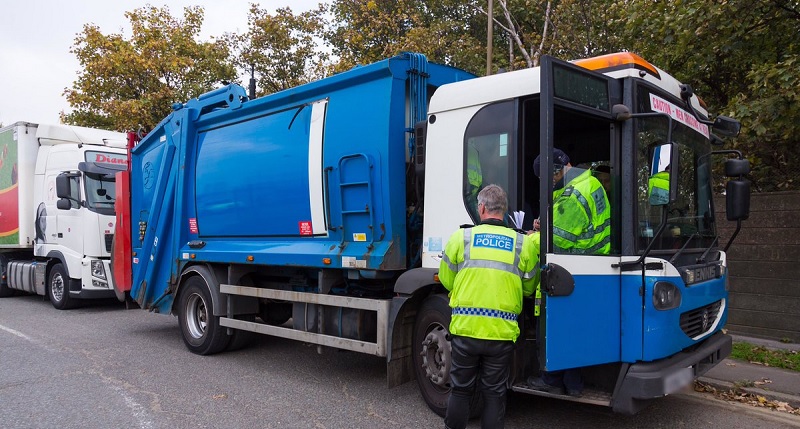An initiative which targets ‘dangerously non-compliant’ drivers, vehicles and operators on London’s roads has checked more than 33,000 HGVs and other commercial vehicles since its launch two years ago.
The London Freight Enforcement Partnership (LFEP) is a partnership between Transport for London (TfL), City of London Police, Driver and Vehicle Standards Agency (DVSA) and the Met Police.
The LFEP works to make roads safer by raising compliance standards among freight operators, and removing dangerous commercial vehicles from London’s roads. The LFEP says the 9,114 fixed penalty notices and traffic offence reports issued in the last two years are ‘acting as deterrents and forcing operators to improve their standards’.
The LFEP’s work has led to 106 arrests, 221 vehicles seized and 12 operator licences being revoked, which according to TfL sends ‘a clear message that dangerous freight practices will not be tolerated’.
Leon Daniels, TfL’s managing director of surface transport, said:
“We are determined to rid London of dangerous freight operators who flout the rules and have no regard for safety.
“By sharing information between enforcement agencies the most unsafe operators are identified, targeted, prosecuted and referred to the independent traffic commissioners.
“We take our responsibility to reduce road danger extremely seriously and are working across our organisation and with our partners to eliminate death and serious injuries from London’s roads by 2041.”
The progress made by LFEP has been welcomed by the victim support and campaign group, RoadPeace.
Cynthia Barlow, from RoadPeace, said:
“We enthusiastically support the work of the LFEP. Road deaths are not ‘accidents’, they are preventable tragedies.
“For many years freight vehicles were disproportionately involved in the deaths and serious injuries of pedestrians and cyclists.
“But just changing the law and setting higher working standards is not sufficient. We need to be able to check that the operators, vehicles and drivers are actually compliant and the LFEP’s roadside checks have made a significant difference.”
17 November 2017

